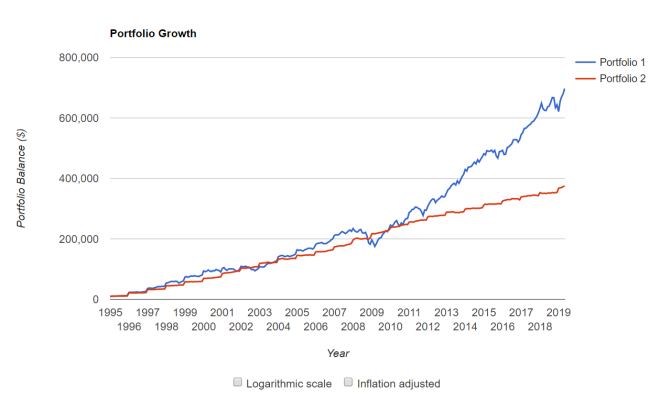That's a subjective call everyone has to make for themselves. I retired in my early 50's with no expectation of pension or inheritance. If I get SS, I get it. But I don't plan for it. So I'm active in my investment planning every day. It's like a hobby to some extent, spending at least 1 hour, sometimes a little more, pouring over investment articles and buying stocks about 5 times per month. I do this in the early morning and am usually done by 7am, before the wife and I go out and play all day. I enjoy it. It's a thrill I get, similar to when I worked and planned software projects during my career. If I lost everything, I can still rely on my ability to go back to my profession and earn money if I have to but that is highly unlikely as I do take precautions, diversify, use stop losses etc.. After a 10 year bull market that has made me a substantial amount of money, I've decided to play it safe and get out of most stocks except a few precious metal miners, which will explode higher when the next recession comes. I can just sit back and wait, earning nothing for 10 years if I have to. Then after the S&P 500 index funds lose 50-75% of it's value, I will start buying back in when the bottom appears to have set. So yes, I'm perfectly happy with playing the stock market when the market cycles say it makes sense. As far as fixed income and CD's go, until rates are normalized again, I won't invest in them except for places to park $ while waiting for something worth investing in. I don't expect income from 1 or 2% returns. Ridiculous, outrageous and a sad testimony to our gov't/fed that values debt more than savings/retirement. But it is what it is and there is always ways to make money and thrive. Some people don't like it. I have a brother-in-law that absolutely hates how I do things. Says it would drive him crazy nervous. To each his own and I respect that. We have to do things how we are individually built and made according to our interests, abilities and comfort level.


